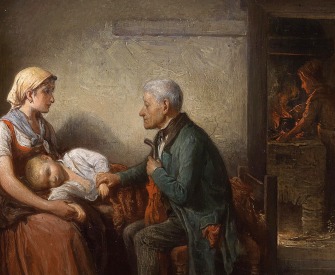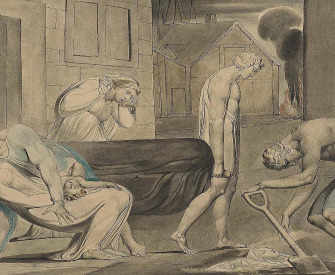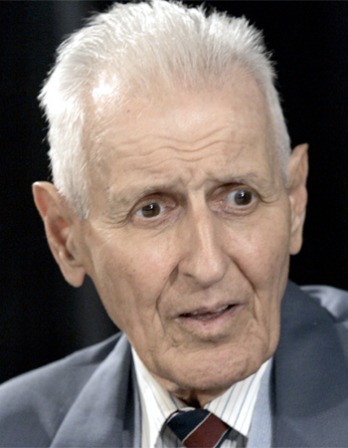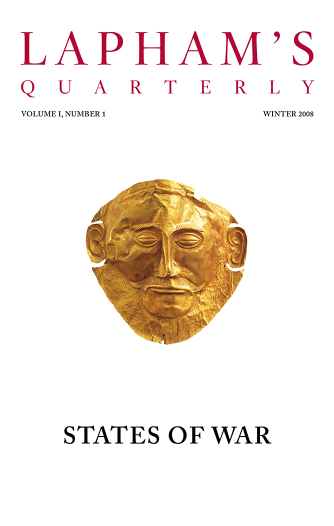I was on a trolley car at Lake Street when I heard what I thought must be screams. I could hear them even above the noise of the car and the noises on the street. Just then a mounted policeman galloped up and stopped all the traffic, shouting, “Excursion boat capsized—look out for the ambulance!”
I ran to the front of the car to get off. The motorman tried to stop me, but I slipped past him and jumped off just as one of the ambulances came up. It had to slow up on account of the congestion, and I managed to jump on the back step. I had my uniform on and so was allowed to stay on until we got to the dock.
I don’t know how I got on the dock, or on the Eastland. Indeed, there are a good many things that happened that day that I am still hazy about. All I remember is climbing up the slippery side of the boat, losing my footing, and being shoved up by somebody from behind. I finally got to where I could stand up on the side of the boat, which was lying out of water.
I shall never be able to forget what I saw. People were struggling in the water, clustered so thickly that they literally covered the surface of the river. A few were swimming; the rest were floundering about, some clinging to a life raft that had floated free, others clutching at anything they could reach—at bits of wood, at each other, grabbing each other, pulling each other down, and screaming! The screaming was the most horrible of all.
They were already pulling them out from below when I got there, out of the water and out through the portholes. People were being dragged out, wet, bleeding, and hysterical, by the scores. Most of those from the decks and the inside of the boat were cut more or less severely, because the chairs and benches had slid down on top of them when the boat went over.
Those who had no injuries beyond the wetting and the shock were sent to the various hotels. I started working, first on the boat itself and then on the dock, helping to try and resuscitate those who were unconscious. The pulmotors had not yet arrived, and we had to try what first-aid measures we could.
The injured were taken to the Iroquois Memorial Hospital. Remembering that this is only an emergency hospital, and is not equipped to handle a large number of cases at once, I asked a policeman how many nurses were on duty there. He said that there were only two. Knowing that I would be more needed there than at the dock, for the present, I hurried over. I went back and forth between the hospital and the dock several times during the day and had no trouble in making the journey quickly. I simply jumped on a patrol wagon or an ambulance and being, as I have said, in uniform, was able to make the trip without being questioned. The one place I did have trouble, and a great deal of it, was at the dock. The police had evidently received orders to keep everybody back, and so zealously did they perform their work that I was held up several times until I could be identified. I finally remembered the armbands that we nurses had received to wear at the picnic. These were of red, white, and blue cloth, with a red cross on them. After I had put mine on I had no further trouble.
By this time the hospital was so full of people that we had no place to put the less seriously injured while they were drying off. Luckily, just at this time, word came from men working in the boiler room of a large building nearby that they would care for as many people as we cared to send over.
I must say that the people of Chicago showed a wonderful spirit. Everyone did all he could to help. As soon as my patients were sufficiently recovered, I would send them home, thinking it better to have them with their families as soon as possible. In order to do this, I would simply go out into the street, stop the first automobile that came along, load it up with people, and tell the owner or driver where to take them. And not one driver said no, or seemed anything but anxious to help out. When the women would be brought off the boat dripping wet, the men standing by simply took off their coats and put them around them.
About nine or half past I started back to the dock. When I got to Clark Street the crowd was so dense that I simply couldn’t walk a step further. So I got on a hook-and-ladder truck that was going down.
When I got to the dock they had begun to bring the bodies up from the hold, and it was pouring rain. The bodies came out faster than we could handle them. By this time a number of outside nurses and doctors were at work on the victims. Most of them were dead, but a few still showed signs of life. I saw that if any of these were to be saved we must get them away from the dock. The crowding and confusion were terrible. The bodies were laid out on the dock, on the bridges, some on a boat, others on the sidewalk. A crowd of willing but ignorant volunteers kept getting in the way and made our attempts at resuscitation almost useless.
I asked a policemen, “Isn’t there some building where we can take these people? Some of them have a fighting chance if we can get them out of the rain and away from this crowd.”
He promised to see what could be done and went away. A little later he returned, saying that we could take the bodies over to Reid & Murdoch’s warehouse. We took the bodies we had, and all the others that came out, over there but it was too late. Out of hundreds that we took to the warehouse, only four were revived.
By this time I had on my armband and so was able to go from the dock to the warehouse and back without being stopped. What made the confusion at the dock still worse was the fact that many of the people who had been pulled out of the water uninjured were still so dazed that they were wandering up and down without knowing where they were or what they were doing. I found one man up a little alley nearby. He was wandering up and down, with a ghastly, expressionless face, repeating over and over again, “I lost them all, I lost them all.” His wife and three children were somewhere in the hold of the Eastland.
About twelve o’clock they reached the bodies in the inner cabins, and after that time all the bodies that came up seemed to be women and children. It had begun to drizzle just before the boat was to start, and the mothers had taken their children inside to be out of the wet.
When I started out in the morning I had had on a white uniform and white shoes. By noon, what with dressing wounds and kneeling on the dock, I was covered with bloodstains and caked with mud from head to foot. I had lost my coat. A fireman threw a woman’s skirt over my shoulders, and I kept the rain out with that.
At four o’clock I went home. There was nothing left to do. I had been on my feet since seven thirty that morning, and I felt that if I ever sat down I would never get up again. I came home in the streetcar, with the skirt wrapped around my shoulders and my brother’s raincoat over that.
Helen Repa,“The Experiences of a Hawthorne Nurse.” Workers of the Western Electric Company and their families boarded the Eastland on July 24, 1915, for a company-sponsored day trip on Lake Michigan. The ship, sailing just three years after the sinking of the Titanic, was carrying thirty-seven life rafts and eleven lifeboats (though it was designed to carry just six); the weight of the emergency crafts is thought to have caused the ship to capsize. Eight hundred and forty-four people died in the accident.
Back to Issue




